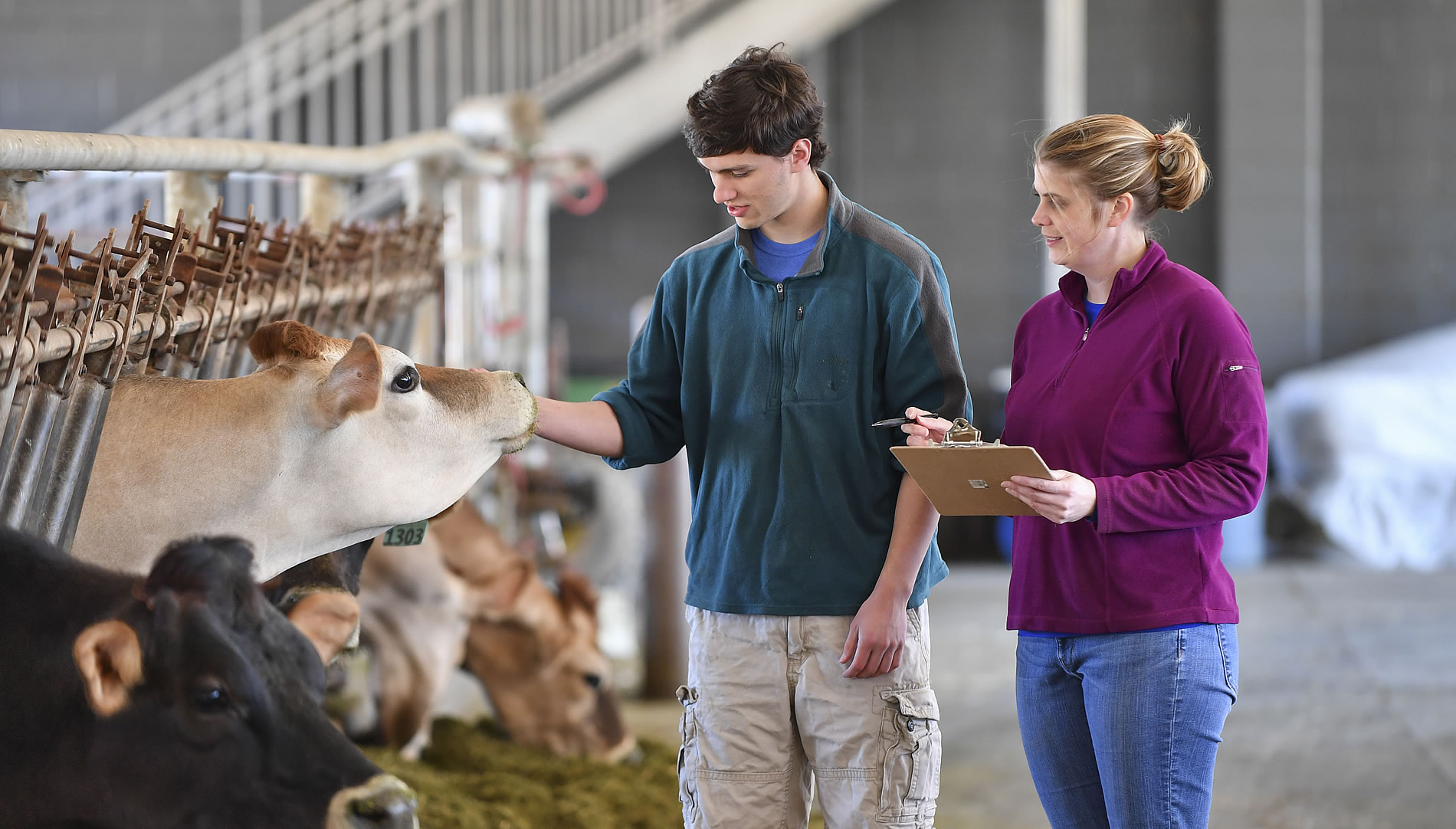While many students are interested in careers with animals, not all of them are meant for veterinary medicine. It takes someone like you with a knack for science and a drive to succeed. In fact, you’re already thinking about how to get into vet school.
There’s no tried-and-true method for gaining an acceptance letter to a veterinary medicine program, but these expert tips can help you put together the strongest possible application.
8 tips for students researching how to get into vet school
According to Dr. Laura Flatow, clinical assistant professor of animal science and pre-vet coordinator at Berry College, it’s wise to think about what’s motivating you to pursue a doctor of veterinary medicine (DVM) degree before you get started. “Really think about working on all your experiences and building a solid application based off what it is about the field that makes you want to be a vet,” she suggests.
1. Aim for academic excellence
Veterinary schools are explicit about the courses applicants need to complete, so you’ll want to identify which prerequisite classes you’ll need to take early on in your education. And it’s essential that you perform as well as you can in those required courses because vet schools carefully scrutinize your science GPA.
“That science GPA really tells schools if students have the ability to do well in a rigorous DVM curriculum,” Dr. Flatow explains.
When thinking about how to get into vet school, it’s also important to do well in your other classes. Dr. Flatow notes that some schools won’t look at the rest of your application if you don’t meet their minimum GPA standards. The only other chance you have to prove your academic prowess is the Graduate Record Examination (GRE), but that’s becoming less important to DVM programs.
2. Gain as much animal and veterinary experience as you can
Students need to accumulate both veterinary experience (work done under the supervision of a veterinarian) and animal experience (any activity that involves working with animals). Dr. Flatow suggests students think more about gaining a breadth of experiences than obsessing over the specific number of hours.
“Vet schools would prefer that students divide their time to get experience in different clinics and with different animals,” she explains.
Looking for a benchmark? The American Association of Veterinary Medical Colleges (AAVMC) reports veterinary students who began class in 2020 accumulated a mean of more than 1,600 veterinary experience hours and more than 1,100 animal experience hours.
3. Consider participating in research
Getting involved in research isn’t a requirement for veterinary schools, but participating in a project that you’re really passionate about can be beneficial. That said, it’s not always easy to find opportunities depending on your school.
“Berry College is a smaller school,” Dr. Flatow says. “There are no graduate students doing the research, so we have more opportunities for undergraduates to get that experience.”
4. Work closely with a pre-vet advisor
Students who have access to a dedicated pre-veterinary advisor should take full advantage. Most everyone knows that getting good grades and accumulating relevant experiences are both essential for getting into vet school, but Dr. Flatow says figuring out all the other nuances like how to approach letters of recommendation can be tricky.
“Pre-vet advisors keep up with the individual vet schools and what their admissions processes look like,” she points out. “That's not something you're going to get from just a typical advisor.”
5. Write a thoughtful essay
The essay portion of the Veterinary Medical College Application Service (VMCAS) asks students to compose a personal statement that illustrates who they are and why they want to pursue a veterinary medicine career. This composition must be 3,000 characters or less.
“Students need to show who they are, what experiences they had that shaped them and what their goals are,” Dr. Flatow explains.
6. Secure glowing letters of recommendation
Every vet school applicant needs to obtain at least three letters of recommendation. But don’t think of these evaluations as items you can check off a list. Most DVM programs expect at least one letter be written by a veterinarian. More importantly, letters should be composed by individuals who know you well.
“Admissions committees are looking for those letters to complement the application by telling them who the candidate is as a person,” Dr. Flatow elaborates. “They can provide insight that may not be in the rest of the application.”
7. Let your personality show through
It’s wise to focus on activities related to animals and veterinary medicine, but don’t forget to mention other valuable experiences in your vet school applications. The VMCAS help guide also lists extracurricular activities, volunteering and even paid work. Mentioning these experiences can give admissions committees a better sense of who you are and where your passions lie. Consider what your time playing sports or volunteering might say about you.
“Schools want students who have soft skills like communication and the ability to work well with others,” Dr. Flatow says. “Things like employment and extracurricular activities can show that.”
8. Be selective when choosing an undergraduate program
“Look for programs that offer courses that are going to be challenging,” Dr. Flatow urges. Berry College’s animal science program, for instance, has developed a reputation for pushing students to do their best. “Students who do well in our program are prepared for a rigorous DVM curriculum, and they end up doing quite well when they get there,” she adds.
Start your journey toward vet school
There’s no proven checklist on how to get into vet school. Remember that admissions committees are looking for candidates who would make good veterinarians, not just good students. Focusing on your studies and gathering experiences that can help you become a well-rounded person will go a long way toward helping you achieve your goal of becoming a veterinarian.
Curious about what else it takes to pursue this career? Learn more by checking out our article “How to Become a Veterinarian: An Aspiring DVM’s All-Encompassing Guide.”



